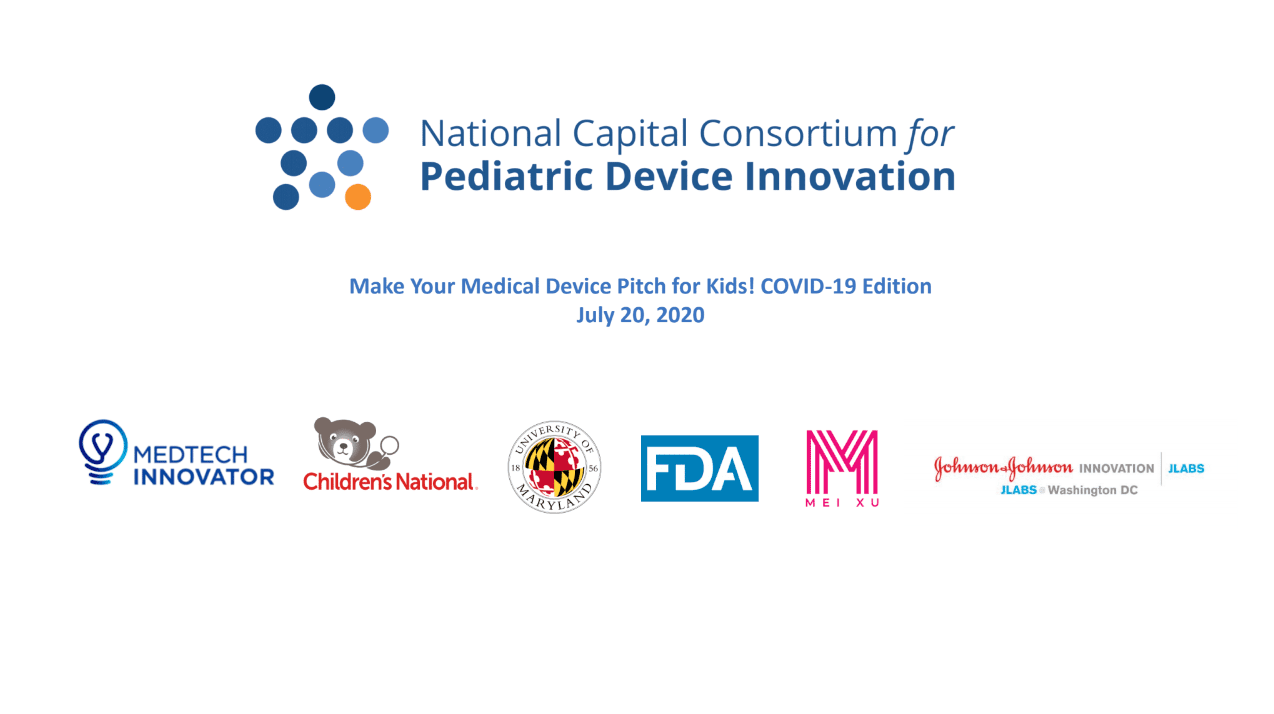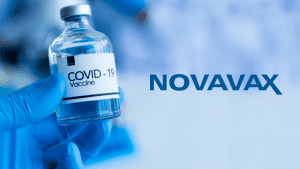
National Capital Consortium for Pediatric Device Innovation (NCC-PDI) Announces Virtual Pediatric Pitch Competition Winners
The National Capital Consortium for Pediatric Device Innovation (NCC-PDI) recently announced the winners of its annual “Make Your Medical Device for Kids!” pitch competition, COVID-19 edition. Each year NCC-PDI holds this pitch competition to bring together innovative companies and entrepreneurs that are looking to fill a glaring unmet need in the area of pediatric medical device development. This year the pitch competition had a special COVID-19 focus.
NCC-PDI started the pitch competition to advocate for increased pediatric medical device innovation and to support emerging companies in their effort to commercialize devices for the younger patient population.
NCC-PDI is one of five members in the Food and Drug Administration’s (FDA) Pediatric Device Consortia Grant Program and is led by the Sheikh Zayed Institute for Pediatric Surgical Innovation at Children’s National Hospital and the A. James Clark School of Engineering at the University of Maryland. Other consortium members are the accelerators MedTech Innovator, which played a big role in powering the virtual pitch competition, and BioHealth Innovation, as well as the design firm Archimedic.
On July 20th, 2020, 16 pitch competition finalists interacted virtually with 75 judges to showcase their devices and win a share of $250,000. Funding for the competition award money was made possible by a U.S. Food and Drug Administration (FDA) grant and a philanthropic gift from the founder of e-commerce platform Yes She May, Mei Xu. Yes She May is dedicated to women-owned brands.Winners were selected by determining the commercial feasibility and clinical significance of their COVID-19-related pediatric medical devices. According to the Children’s National press release about the event, the competition focused on “…medical devices that support home health monitoring and telehealth, and improve sustainability, resiliency and readiness in diagnosing and treating children during a pandemic.”
The 2020 “Make Your Medical Device Pitch for Kids!” special COVID-19 edition competition winners are:
- Bloom Standard (Kaaria), Hong Kong, China – $20,000 awarded – wearable, AI-driven ultrasound for infant cardiac and pulmonary screening and diagnostics
- Children’s Hospital of Philadelphia, Philadelphia, Pennsylvania – $20,000 awarded – transparent reusable DIY origami face mask that reveals facial expressions & improves communication
- Hopscotch, Ithaca, New York – $20,000 awarded – gamified cognitive behavioral therapy-based computer exercises to encourage kids to stay engaged and complete treatment programs
- Medipines, Yorba Linda, California – $50,000 awarded – monitor device that displays critical respiratory parameters analyzed from a patient’s breathing sample
- OtoPhoto, Baltimore, Maryland – $20,000 awarded – a smart otoscope that quickly and accurately aids diagnosis of ear infections for home telehealth use *#BioHealthCapitalRegion company
- TGV-Dx, New York, New York – $50,000 awarded – a novel, phenotype-based test system for rapid selection of effective antibiotic regimen
- Vitls, Houston, Texas – $50,000 awarded – wearable platform for remote patient monitoring of the vitals clinicians require to assess a patient
- X-Biomedical, Philadelphia, Pennsylvania – $20,000 awarded – rugged, portable smart ICU ventilator for pediatric and adult patients
One of the companies listed above will be chosen by Johnson & Johnson Innovation – JLABS for a one-year residency at JLABS @ Washington, DC, which will be part of the new Children’s National Research and Innovation Campus that is currently under construction. JLABS and NCC-PDI will announce the recipient at a later date.
- About the Author
- Latest Posts
Steve brings nearly twenty years of experience in marketing and content creation to the WorkForce Genetics team. He loves writing engaging content and working with partners, companies, and individuals to share their unique stories and showcase their work. Steve holds a BA in English from Providence College and an MA in American Literature from Montclair State University. He lives in Frederick, Maryland with his wife, two sons, and the family dog.




